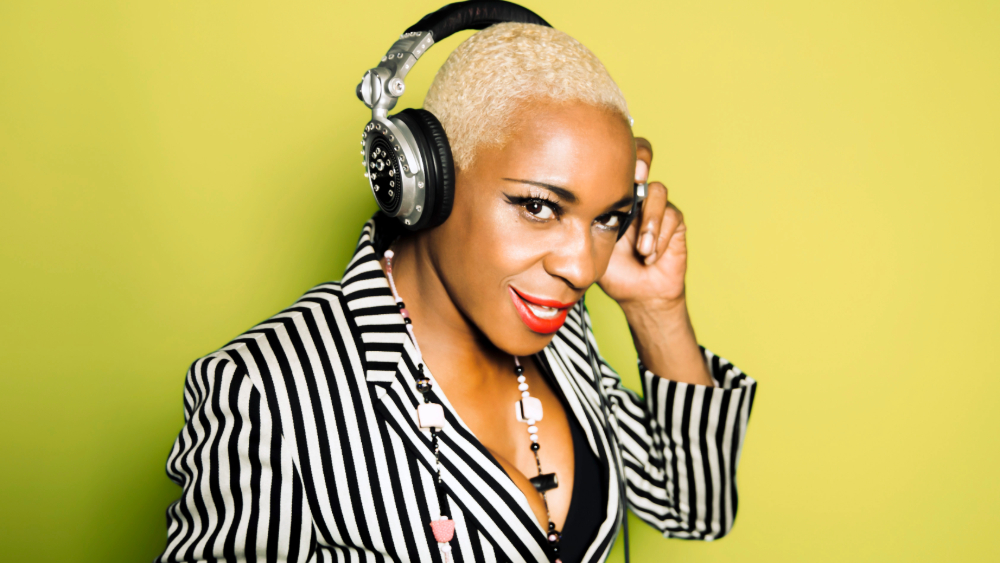If there’s one artist you can count on to keep it real when it comes to the music industry, it’s Self Esteem.
The Rotherham-born artist, real name Rebecca Lucy Taylor, has released three acclaimed solo albums — including 2025’s A Complicated Woman — landed herself BRIT Award and Mercury Prize nominations, and performed a leading role in a West End show, all while making a name for herself as one of the most honest voices in pop, both on and off the stage. Throughout the years Rebecca has been outspoken about the unique challenges facing songwriters in the music industry, ranging from gender inequality and financial instability to mental health pressures.
Rebecca joined Elbow frontman and broadcaster Guy Garvey at last week’s Ivors Academy Summit in London, held in partnership with PRS for Music and ICE, to delve into her fiercely honest approach to songwriting and the self-ascribed rules she lives by. Here are the key takeaways we gleaned from The Ivors Academy Summit: Self Esteem and Guy Garvey in conversation.
Establishing your own rules is key
It should come as no surprise to fans of Self Esteem’s music that Rebecca doesn’t limit herself to a single creative formula when it comes to songwriting.
‘Sometimes I've decided exactly what it's going to be,’ she explained, adding that her process comes down to trying to ‘summon out’ exactly what she’s trying to say. That often means collaborating with an artist who’s admittedly more proficient than her on the piano while she searches for the right words.
It’s an approach that’s also familiar to Guy, who noted that many songwriters will openly admit to making music first and foremost because there’s simply something ‘they’ve got to get out’, even if that has become a bit of a cliché. Much of the magic in Self Esteem’s music though, Guy noted, is that you can ‘hear the idea unfolding while the song's playing’.
Songwriting is a responsibility
With the themes across her albums ranging from patriarchal frustrations to societal anxieties, it’s no secret that Self Esteem’s music resonates deeply with women. With those ‘lightning in a bottle’ songs being recorded at moments of intense emotional potency, does that bring a big sense of responsibility?
‘Yeah, but it’s also selfish,’ Rebecca acknowledged. ‘As a woman, you’re told you can do anything, could be anything, but also you still have to be someone's nice wife and have a baby. It’s like you are damned if you do and if you don't.’
She recalled feeling creatively out of place during her time in the indie band Slow Club. Now, though, she’s afforded the freedom to make music that feels most true to her: ‘It's a responsibility to make her, the younger me, feel better, and then just anyone who feels like they're looking around going, “I've not done all the things everyone else has done, and that means I'm behind or I'm not good enough.”’
Honesty should always trump commercial pressure
Despite the huge critical acclaim for her second album Prioritise Pleasure, Rebecca still felt pressure from a ‘concentrated’ industry to lean into a sound that could prove more commercially viable.
‘I knew going into making my third album, the way to probably make a lot of the money and get massive would be, “Here come the girls” [and] body positivity kind of songs. But I don't feel like that at all,’ she admitted.
Her brutally honest songs have become her calling card, and Rebecca reaffirmed the importance of honouring truth in her writing: ‘I can’t broaden it. Eventually I’ll probably be annoyed I can’t because I need money, but I couldn’t do it because that’s not life either. That’s the responsibility I feel. It's just like [with] anything marketable: it's quicker to make sense, whereas it felt like I've watched men be completely contrarian the whole time, and be whatever they want and get older, and that doesn't stop their career.’
Branching out is a good thing
Self Esteem’s live shows have always been theatrical, so Rebecca seemed like an obvious choice to play Sally Bowles in the 2023 West End revival of Cabaret, which helped expand her skill set as a performer. ‘I definitely want to do more theatre,’ she told Guy, adding that she’s going to try and tour the live theatrical version of her latest album after debuting it at the Duke Of York’s theatre in London earlier this year.
Self Esteem recently spoke in more detail to The Times about feeling ‘desperate to diversify’ her career after feeling ‘depressed and stressed’ about her earnings, telling the newspaper that acting could be ‘another string to my bow that makes me less reliant on the music industry’.
She added during the panel that, after finally making some money from her second album, she decided to put it all back into her craft and spend ‘every penny on an 11-person show’.
Comparison culture never stops
It’s easy for songwriters at all levels to be plagued with comparison culture, and Rebecca certainly isn’t immune to it.
‘There's so much I want to do, and there's so many hurdles to it,’ she explained. ‘Especially as a “woman in music” there's a lot of female artists that supersede me over and over, and they're then held as a standard that I don't think other men get held to. I'm then like, “Well, I can't do that, because that's completely different to what I’ve been saying, doing or thinking. But because it's a woman I've got to try and emulate it, and the level it's got to.”’
But her own metrics of success simply come down to wanting ‘a roof over my head’ and just being able to ‘make the art’. ‘Because this framework for single, solo female artists is “global, huge pop star”. If you're anything other than that, it still feels like you need to be,’ she added. ‘I'm happy to be that! But I just don't think the whole world will be able to understand what I mean. I can't edit it; I can't dilute it.’
Featured image credit: Mike Banks (@recordproductioncom on Instagram). Find out more about joining The Ivors Academy, including getting started for free as a Discover member, here.





